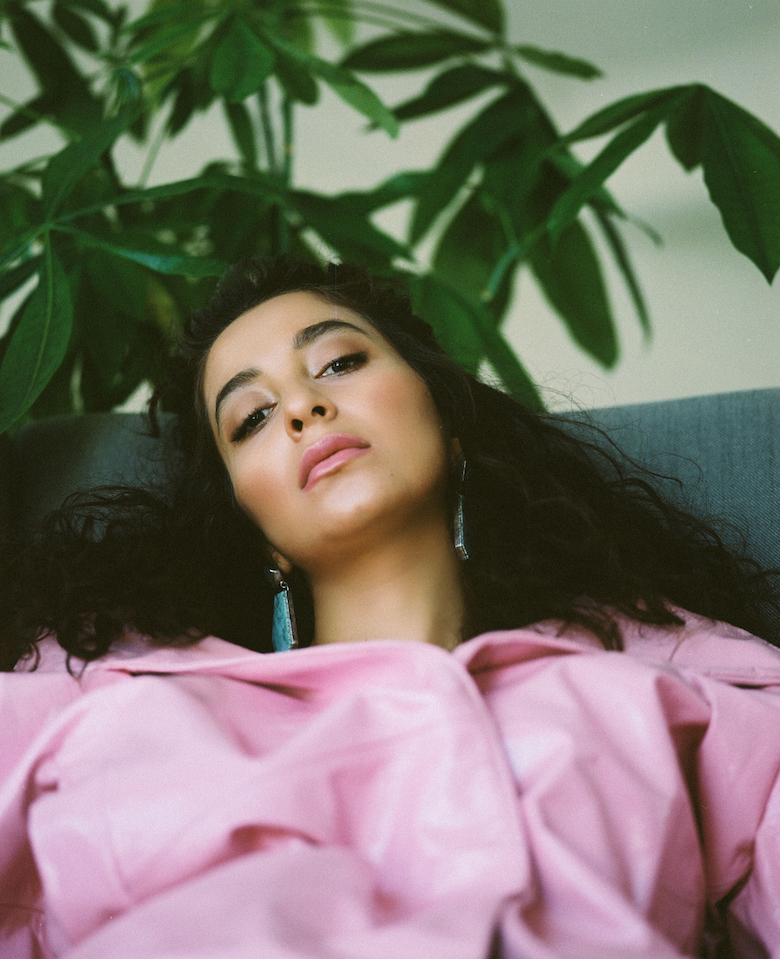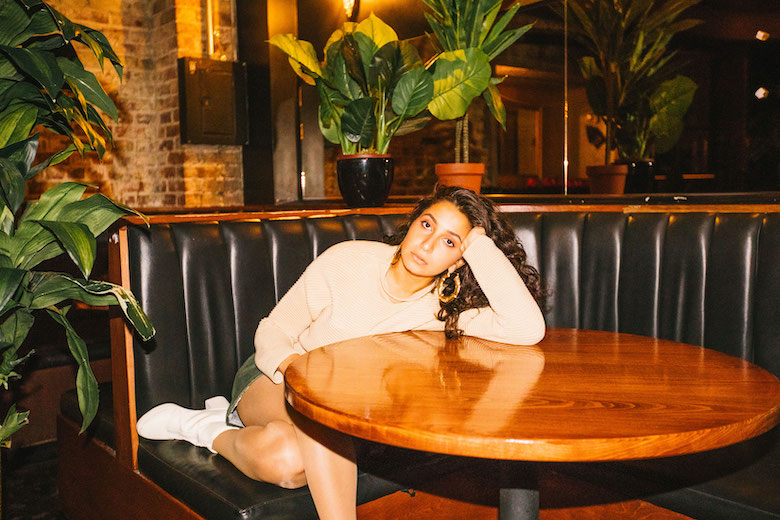Wafia can remember the exact moment that first alienated her from the music industry. “I was in high school, and someone was trying to scout me and sign me to a label,” she says. “They took me to this store to have me try on clothes and figure out what my branding would be, and the store they took me to was just horrendous.”
She put on outfit after outfit, she says, saying she must have looked “visibly uncomfortable” and that she felt “traumatized.”
“Their idea of me was so different from what I am,” Wafia says. “I remember thinking, ‘I can’t do this.'”
Needless to say, the scouting event was a bust, and Wafia’s relationship with the label quickly fell apart. Rattled by the experience of being corralled into a pre-packaged “brand,” Wafia explains that, for a long time, “that’s what I thought the entire music industry was like. It happened at such a young age that I didn’t want to do anything. I didn’t sing or write for maybe a year after that.”

Now, at 24, the Syrian-Iraqi singer-songwriter credits that day with teaching her the importance of creative agency.
“It was a really important point in my life where I realized I needed to gain control. I wanted to be able to say, ‘Screw everything, I’m going to be independent, I’m going to pay for everything myself, and no one can tell me what to do.'”
Since then, Wafia has released two electronic pop EPs and a handful of singles that have racked up millions of streams online; she’s also sold out shows across North America, Europe, and her home continent of Australia. “Better Not,” her single with producing duo Louis the Child, peaked on Billboard‘s dance/electronic charts within two weeks of its release in 2018.
These days, Wafia says, she’s making “exactly the music [she] wants to make,” with bright, pristine vocals colliding with somber bass to create a floaty pop sound.
It would be easy to describe Wafia’s stardom as a tidy “lean in” story, where Wafia gritted her teeth and found her way to commercial success using nothing but pluck and the right pop melodies. In reality, music as a full-time career seemed a precarious dream for most of Wafia’s life, she says, and came at great cost to her family and herself. Refusing to be signed, after all, means leaving money on the table.
“In the beginning I didn’t want [outside] money, because money meant influence,” Wafia says. “I didn’t want anyone to come in and influence the music. My dad worked really hard with me to help pay for my first two EPs so that I could maintain creative control.”
Around this same time, Wafia decided to forgo applying to medical school, pivoting away from her pre-med undergraduate degree to commit fully to music. “I reached a point where I couldn’t see myself doing anything else,” she says. “I don’t come from a rich family, and there are always remnants of concern [over money], but it just came down to the kind of lifestyle I saw for myself. And I’m very fortunate in that my parents were willing to support my music.”
Wafia’s emphasis on family extends into her songs as well. One of her most popular singles to date, “Bodies,” is about her extended family in Syria, while her collaborative EP with producer Ta-ku addresses her parents’ separation: In “Love Somebody,” she cries, “I’d rather take the blame than break it off.”
Even when her family isn’t the direct inspiration for her lyrics, Wafia says they’re on her mind whenever she thinks about what kind of artist she wants to be.
“I’m representing for my family, and I don’t carry that lightly,” she says. “I have two younger sisters, so, at the very least, I know that two younger people are looking up to me.”
This determination to represent her family and her family’s cultural heritage is a relatively new mindset for her, Wafia says.
“For the longest time, I wanted to be white, I wanted my name to be Sarah, and I hated my culture. I didn’t want anything to do with it.” Wafia says. “I would feel so embarrassed when my friends came over and my parents spoke Arabic or played Arabic music. I hate that I ever felt that way, but that’s truly how I felt for maybe 17 years of my life.”

“In the Western world there isn’t a blueprint for success for Arabs and Muslims in entertainment,” she says. “When I was growing up, everyone I looked up to was predominantly white. I didn’t feel represented, and I didn’t feel seen or heard. It wasn’t until much later in my life, when I was surrounded by other women that identified with my background, that I became inspired to love my culture and love where I come from.”
Wafia pauses. “I think about this a lot. And because our [Arab and Muslim] stories aren’t told in mainstream media, it’s up to us now to control that narrative. I’ve always felt that when people see me for the first time, they don’t see an individual woman, they see an Arab person. And until there’s equal representation, I’m going to talk about Arab representation and diversity.”
“And even if I’m writing a song about heartbreak or love, the fact that I’m an Arab Muslim woman talking about these things is awesome,” Wafia says. “I can’t speak for all Arabs, or all Muslim women, but I do believe that sometimes by me just existing, that’s representation enough.”

Pacific Standard’s Ideas section is your destination for idea-driven features, voracious culture coverage, sharp opinion, and enlightening conversation. Help us shape our ongoing coverage by responding to a short reader survey.


!["Because our [Arab and Muslim] stories aren't told in mainstream media, it's up to us now to control that narrative. ... And until there's equal representation, I'm going to talk about Arab representation and diversity."](https://psmag.com/wp-content/uploads/2024/07/wafia_esperopsmag.jpg?w=1160&h=0&crop=1)


